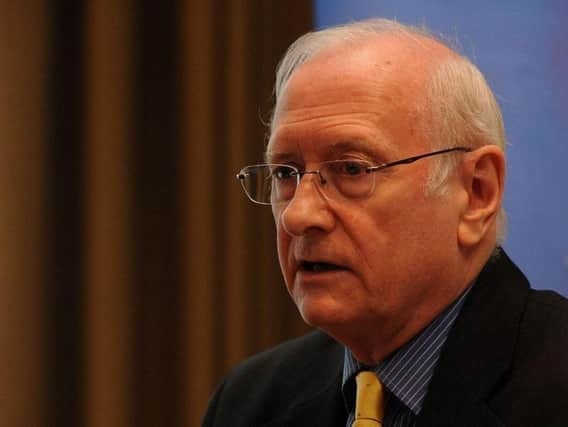Giving children under 16 criminal records 'blights their lives', South Yorkshire's police commissioner says


Dr Alan Billings, who sat on the national Youth Justice Board for many years before becoming a police commissioner, said: “I would sooner people didn’t have a criminal record at the age of 10 and my personal view is that 16 would be a better age.
“That’s not to say they don’t commit crimes, they clearly do, but you need different ways of dealing with them.
Advertisement
Hide AdAdvertisement
Hide Ad“But to give them criminal records at that age I think is unhelpful - to them, but also to society - because it is something that hangs around you.”
The United Nations has called on legislators in England and Wales to raise the current age of criminal responsibility from 10, with its Committee on the Rights of the Child saying the “absolute minimum” around the world should be 12 years of age.
In many countries, while teenagers face punishments for breaking the law, including incarceration, they are not given criminal convictions.
Labour’s Dr Billings said: “I think when people are very young, what you don’t want to do is you don’t want them to have a criminal record at such a young age which blights their lives, possibly for evermore.
Advertisement
Hide AdAdvertisement
Hide Ad“It can come as a terrible shock to young people later on in life, if they’ve got a criminal record when they are young, to realise they are not going to get jobs, they are not going to be able to go to America on their holidays, it catches them in all sorts of ways which at the time they don’t think about.
“We have to try and save them from that because at the end of the day, they are children.
“On the other hand, clearly you want to send a message to society that there are certain crimes that have to receive a measure of punishment.
“So it’s a very, very difficult balance to get but on the whole if we cannot criminalise young people that’s the route we have to go down.”
Advertisement
Hide AdAdvertisement
Hide AdDr Billings said during his time on the board they had made concerted efforts to cut the number of young offenders being locked up.
He said there were “some very severe crimes” where young people had to be deprived of their liberty, such as the two ten-year-old boys, Jon Venables and Robert Thompson, who murdered two-year-old James Bulger in 1993.
He said: “There are some children sadly like that, but for many children and young people it’s a time in life when they are sadly very easily influenced, get into wrong company and start to go off the rails, so we desperately didn’t want to lock up children like that if we could possibly avoid it.”
He said he remembered visiting teenage boys who had been remanded in custody in an institution in Wetherby after inner-city riots in 2001.
Advertisement
Hide AdAdvertisement
Hide Ad“I remember seeing one 15-year-old lad who was just sitting there crying. He wanted his mum,” he said.
“It was the first time he had ever been in trouble. He had just got caught up in the riots. And it’s that sort of thing you want to save young people from.”
There is no global consensus about the age at which a child knows they are in the wrong when they commit an unlawful act.
The age at which children are held responsible for any crimes they commit varies around the world.
Advertisement
Hide AdAdvertisement
Hide AdIn 35 American states, children of any age can be convicted and sentenced.
Some countries, such as India and Singapore, set the age of criminal responsibility as low as seven while others, such as Columbia, set it as high as 18.
In Scotland, the age of criminal responsibility is being raised from eight, which had been the lowest in Europe, to 12.
More than a decade ago, the United Nations called on legislators in England and Wales to raise the age at which children can be charged with crimes – a call which has been resisted by governments of all hues.
Advertisement
Hide AdAdvertisement
Hide AdThe age of criminal responsibility has been 10 in England and Wales since 1963.
Supporters of the status quo say children of that age know right from wrong and the law provides a deterrent to would-be rule-breakers.
But those calling for a change are growing.
In 2010, the Law Society of England and Wales said there was a “strong case” for raising the threshold, suggesting it should instead be 14.